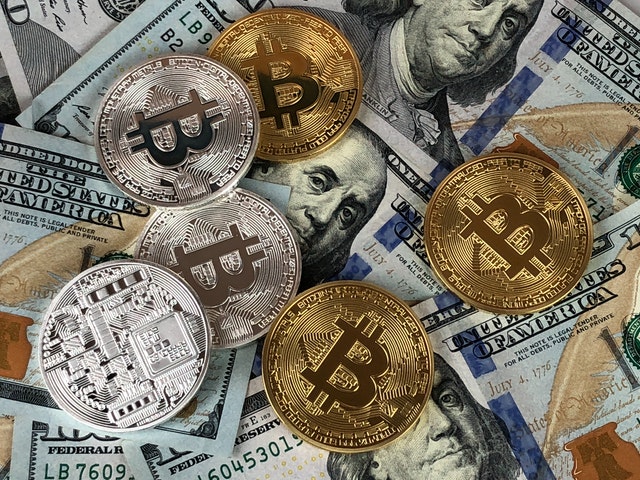Have you ever wondered what it would be like if employees got paychecks and bonuses in cryptocurrencies? I hope the answer is “yes” because such an idea is already here. And this crypto trend is spreading, as it’s already attracted big fish like the Mayors of New York City and Miami, or professional football players.
But would the average worker actually want to be paid in digital coins? Do people even know what the blockchain or cryptocurrencies are? These are the questions that resume services provider Zety addressed in a recent survey.
What is Cryptocurrency?
The above is a question that most of us won’t ask, and certainly not the research respondents. It turns out that 99% of survey takers have heard of cryptocurrencies. They also recognize the names of more well known coins like Bitcoin (97%) or Ethereum (86%). Similarly, people know what NFTs are (90%).
With Elon Musk tweeting about crypto or notorious scams like Squid Game Coin, it’s hard not to hear about it.
But knowledge is one thing. What about holding and investing in these digital assets? Far fewer people actually make any moves in the crypto exchange. According to a recent Pew Research Center survey, 16% of Americans have personally invested in, traded, or otherwise used cryptocurrency. In turn, New York Digital Investment Group says 22% of adults held Bitcoin in 2021. This may not seem impressive, yet both numbers represent more than 40 million Americans engaged in crypto.
So it’s not a surprise that the idea of receiving salary and bonuses in crypto was born, and more and more employees are interested in this alternative way of getting paid.
Openness to crypto salary
So, should you want a crypto salary? Why not.
In the study, 57% rate this idea as good, while 16% consider it very good. This gives us 73% of respondents potentially open to crypto salary. At the same time, only 9% believe that getting paid in digital currency is a bad or very bad concept.
However, it’s not that simple. Being open to crypto salary doesn’t automatically mean the courage to accept it. As the study proved, 32% of respondents would like to stay on solid ground and said they would want to be paid traditionally through regular money (without crypto).
But there’s no shortage of the brave ones, either. 40% would prefer to be paid both in standard currency and crypto, while 21% wanted to get payments from employers in crypto.
So still, we’re dealing with quite a positive approach to crypto salary and bonuses. This leads us to a couple of simple questions. What’s the reason for that? Do people have positive experiences with crypto? The answer is yes.
75% of respondents claimed they’ve earned a salary or bonus in digital coins once before at least. Here, we should also consider that they might not necessarily have received a quick transfer of coins but converted part of their salary (or all of it), after payment.
That’s not all. For employees, an employer that is open to crypto is perceived as more attractive. 74% of respondents would be more likely to work for a company if it paid a salary in crypto. Also, 71% would prefer to work for an employer if they paid bonuses in crypto.
One striking piece of information to end with. When respondents were asked if they would quit if the employer offered a salary ONLY in crypto, 69% said yes.
But still, having that in mind, we can maintain the assumption that crypto is popular. Many believe it can potentially change the payment system we use today. So this conversation cannot proceed without examining the good and the bad.
Digital assets: yes or no?
Most people who’ve heard of cryptocurrencies are able to discuss at least a few of the good and bad things about receiving digital coins.
Among top crypto pros, respondents point out:
- more chances to invest – 34%
- crypto transactions sometimes take effect quickly – 31%
- international fees can often be avoided – 28%
- the transaction bypasses the bank (financial middleman) – 24%
In turn, the cons cover:
- exchange rate volatility – 28%
- vulnerability to hacking attacks – 26%
- taxes on cryptocurrencies are complex and poorly understood – 21%
- people generally don’t know how to manage crypto well enough – 21%
- can be fraud-prone – 21%
So here they are, both pluses and minuses. Positive aspects balance out with negative ones. And it’s good to consider both when deciding to receive your salary through crypto.
What’s next for crypto payments?
Flexibility and choice are essential when it comes to crypto payments. Having that in mind, we can wonder about the future of digital coins. Will crypto paychecks gain popularity? Will more and more people decide to use this method of receiving a salary? And what about bonuses?
However, Zety’s respondents think that more people will want to get paid in crypto in the future (81%).
Will they be right? Well, the future will tell.
About the author

Nina Pączka is a career advisor and job search expert at Zety. She offers professional insight to everyone wanted to gain insight into the job market. Her professional advice and guidance help people find a satisfying jobs and pursue a career. Nina’s mission is to support jobseekers in their path leading to finding a perfect job.
Photo by David McBee on pexels.com




